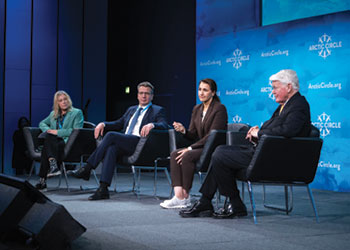
 Implementation of Article 6 can more than double emissions mitigation
Implementation of Article 6 can more than double emissions mitigation
If operationalised, it will help in the creation of a framework for international cooperation on carbon markets and other carbon mechanism for reducing greenhouse gas emissions
One of the key issues that COP28 will have to thoughtfully pave the way for is Article 6 of the Paris Agreement of 2015. Its implementation will see the establishment a new global carbon market system to help countries decarbonise their economies at a lower cost through cooperation and investment.
If the goals of the Paris Agreement in keeping the global average temperature to well below 2 deg C above pre-industrial levels and possibly limiting it to 1.5 deg C are to be met, then carbon dioxide (CO2) emissions must decline to zero or below by mid-century or shortly thereafter and remain at zero thereafter.
And the primary mechanism for achieving the Paris climate change limitation goal is the Nationally Determined Contribution (NDC) reflecting near-term intentions to reduce national emissions. This is where Article 6 comes in.
If ‘operationalised’, Article 6 will help the creation of a framework for international cooperation on carbon markets – that have emerged as key instruments – and other carbon mechanism to reducing greenhouse gas emissions.
Operationalising involves developing reporting formats, agreeing on review processes, and building the infrastructure required to track transfers of credits between countries.
Back at COP26, countries had reached new agreements for market mechanisms, essentially supporting the transfer of emission reductions between countries while also incentivising the private sector to invest in climate-friendly solutions.
For the private sector, the adoption of the rules enables new mitigation activities to start in particular to implement mitigation projects under the new UNFCCC mechanism.
In addition, many activities that already operated under the clean development mechanism of the Kyoto Protocol will be able to move over to the new UNFCCC mechanism by using the rules adopted that provide for this transition.
In the following COP27 at Sharm El-Sheikh, very little progress was made on Article 6, albeit a new category of emissions reduction termed ‘mitigation contributions’ was created.
Now countries will need to provide more clarity on its operationalisation in the upcoming COP28.
With a new phase of carbon markets on the horizon, as the framework for new markets under the Paris Agreement move to implementation, these markets will be based on the overarching rules of Article 6.
Parties at COP28 will have to explore the most significant sections of Article 6 to move forward. These include: Article 6.1 (cooperate between countries; Article 6.2 (trading of carbon credits between countries); Article 6.4 (purchasing credits approved by a UN supervisory body; and Article 6.8 (countries can finance non-market approaches instead of trading credits).
By Abdulaziz Khattak











































































